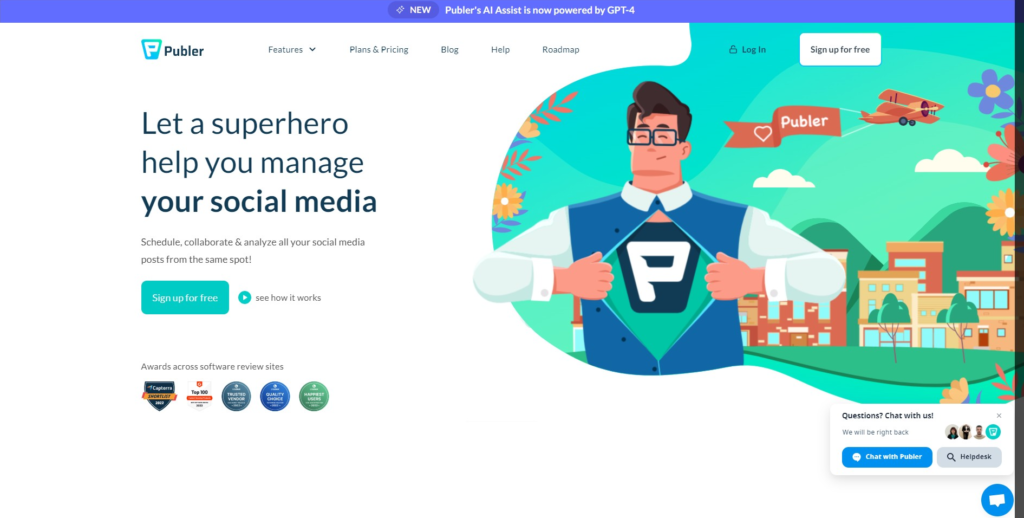Are you interested in starting your own affiliate marketing business but don’t know where to begin?
One of the first things you’ll need to do is create a website.
Luckily, building a website has never been easier, thanks to WordPress.
In this article, we’ll walk you through the steps to create a WordPress website that’s optimized for affiliate marketing.
Step 1: Choose a Domain Name
Your domain name is the address that people will use to find your website.
It’s important to choose a domain name that’s memorable, easy to spell, and relevant to your niche.
Ideally, it should also include a keyword that describes what your website is about.
This can help with search engine optimization (SEO) and make it easier for people to find your website.
When choosing a domain name, consider using a domain name registrar like Namecheap or GoDaddy.
These companies allow you to search for available domain names and purchase them for a reasonable price.
If your desired domain name is already taken, try adding a keyword or modifier to make it unique.
Once you’ve chosen a domain name, make sure to register it for at least a year.
This will ensure that no one else can use it during that time.
You can also consider purchasing multiple domain names and redirecting them to your main website to protect your brand and increase your online presence.
Web hosting is like the land where your website is built.
It’s important to choose a reliable web hosting provider that offers fast loading times, good uptime, and excellent customer support.
Look for a provider that offers a one-click installation of WordPress.
When choosing a web hosting provider, consider factors like pricing, server location, and storage space.
Some popular web hosting providers include Bluehost, SiteGround, and HostGator.
These companies offer affordable web hosting plans with different features and levels of support.
Before signing up for a web hosting plan, make sure to read reviews and compare plans from different providers.
This can help you find the best web hosting plan for your needs and budget.
I recommend getting Elementor cloud hosting as it comes with themes and and Simple drag and drop website editor which I use with every website I create.

Step 3: Install WordPress
Once you’ve chosen your web hosting provider, it’s time to install WordPress.
This is a simple process that only takes a few clicks.
Most web hosting providers offer a one-click installation of WordPress, so you don’t need any technical knowledge.
To install WordPress, log in to your web hosting account and navigate to the control panel or cPanel.
Look for an option to install WordPress and follow the prompts.
You’ll need to choose a username and password for your WordPress account and select a theme for your website.
After installing WordPress, you can start customizing your website and creating content.
WordPress is a user-friendly platform with a lot of customization options, so you can make your website look and feel exactly how you want it to.
If you go ahead with an Elementor Cloud Hosting registration this is already done for you
Step 4: Choose a WordPress Theme
Your WordPress theme determines how your website looks and feels.
It’s important to choose a theme that’s optimized for speed, SEO, and mobile devices.
There are thousands of free and paid WordPress themes available, so choose one that matches your niche and is easy to use.
When choosing a WordPress theme, consider factors like customization options, page speed, and customer support.
Some popular WordPress themes include Astra, GeneratePress, and Divi.
These themes offer different features and levels of support, so choose one that’s right for you.
Once you’ve chosen a WordPress theme, install it on your website and start customizing it.
You can change the colors, fonts, and layout of your website using the theme customization options.
This can help your website stand out and attract more visitors.

Step 5: Install Essential Plugins
Plugins are like apps that add functionality to your website.
It’s important to install essential plugins for affiliate marketing, including an SEO plugin, a caching plugin, a backup plugin, and a plugin to manage affiliate links.
An SEO plugin like SquirrlySEO can help you optimize your website for search engines by analyzing your content and making suggestions for improvement.
A caching plugin like Rabbit Loader or W3 Total Cache can improve your website’s loading speed by storing cached versions of your pages.
A backup plugin like UpdraftPlus can automatically back up your website to the cloud, ensuring that you never lose your content.
A plugin like AffiliateWP can help you manage your affiliate links by creating easy-to-remember links and tracking clicks and sales.
This can help you earn more money from your affiliate marketing efforts.
When choosing plugins, make sure to read reviews and choose reliable, well-maintained plugins.
Installing too many plugins can slow down your website, so choose only the essential ones and deactivate any plugins that you’re not using.

Step 6: Create High-Quality Content
Content is king when it comes to affiliate marketing.
It’s important to create high-quality, engaging content that provides value to your readers.
This can include blog posts, reviews, tutorials, and videos.
When creating content, focus on your niche and provide information that your target audience is looking for.
Use keywords and phrases related to your niche to improve your SEO and attract more traffic to your website.
Make sure your content is well-written, easy to read, and free of errors.
Use images, videos, and other media to make your content more engaging and informative.
Provide value to your readers by answering their questions and solving their problems.
Step 7: Promote Your Content
Once you’ve created high-quality content, it’s important to promote it to attract more visitors to your website.
This can include sharing your content on social media, guest posting on other websites, and participating in online communities related to your niche.
Use social media platforms like Facebook, Twitter, and Instagram to share your content and engage with your audience.
Join online communities like forums, groups, and subreddits related to your niche to connect with like-minded people and share your expertise.
Guest posting on other websites can help you reach a larger audience and build backlinks to your website.
Look for websites in your niche that accept guest posts and reach out to them with a pitch.
I use Publer.io to promote my content through my social media channels

Step 8: Monetize Your Website
The ultimate goal of affiliate marketing is to earn money from your website.
There are many ways to monetize your website, including affiliate marketing, advertising, and sponsored content.
Affiliate marketing involves promoting products or services and earning a commission for any sales made through your unique affiliate link.
Look for affiliate programs in your niche and join them to start earning money.
Advertising involves displaying ads on your website and earning money based on clicks or impressions.
You can use advertising networks like Google AdSense or Mediavine to display ads on your website.
Sponsored content involves partnering with brands to create content that promotes their products or services.
This can include sponsored blog posts, social media posts, and videos.

Conclusion for Affiliate Marketing Website with WordPress
Creating a WordPress website for affiliate marketing can seem daunting, but it’s actually quite simple.
By following these eight steps, you can create a professional-looking website that attracts visitors and earns money through affiliate marketing.
Remember to choose a memorable domain name, a reliable web hosting provider, a fast and mobile-friendly theme, essential plugins, and high-quality content.
Promote your content and monetize your website through affiliate marketing, advertising, and sponsored content.
Good luck!
FAQ's
- How much does it cost to create a WordPress website for affiliate marketing?
The cost of creating a WordPress website for affiliate marketing depends on factors like web hosting, domain name, and plugins.
You can start a website for as little as $3 per month. - Can I use free WordPress themes for affiliate marketing?
Yes, you can use free WordPress themes for affiliate marketing.
However, paid themes often offer more customization options and better support. Do I need any prior experience with WordPress or affiliate marketing to create a successful affiliate website?
No, you don’t necessarily need any prior experience with WordPress or affiliate marketing to create a successful affiliate website.
However, it’s important to be willing to learn and put in the time and effort necessary to research and implement effective strategies.Can I start an affiliate marketing website with a free WordPress account?
Yes, you can start an affiliate marketing website with a free WordPress account. However, you may be limited in terms of customization options and functionality.
It’s generally recommended to invest in a paid WordPress hosting service and domain name for greater control and flexibility.How do I choose which affiliate products to promote on my website?
When choosing which affiliate products to promote on your website, consider your target audience’s interests and needs, as well as the commission rates and reputation of the affiliate program.
It’s also a good idea to test and track different products to see which ones perform the best for your audience.What are some common mistakes to avoid when creating an affiliate marketing website with WordPress?
Common mistakes to avoid when creating an affiliate marketing website with WordPress include overloading your site with too many affiliate links or ads, not optimizing your content for SEO, and not providing enough value or relevant information for your audience.Can I use social media to promote my affiliate marketing website?
Yes, social media can be a powerful tool for promoting your affiliate marketing website and driving traffic to your content.
Be sure to choose the platforms that are most relevant to your target audience and share valuable content that encourages engagement and sharing.












